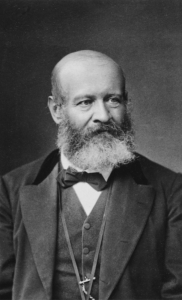 Happy Birthday Alfred Escher
Happy Birthday Alfred Escher
In times where innovation and entrepreneurship is discussed across the globe, the name Alfred Escher needs to be mentioned. Maybe one of the most influential entrepreneurs of all times. Yet, back in the days where he was actively engaged, quite some people were undecided if what he does is of any value, several even thought it’s the biggest wast of time and resources of all times. It was in the days when Switzerland was the poorest nation in Europe and his ideas have been everything but obvious for the average Swiss.
In retrospect we can say he single handedly built the foundation of the swiss economy and the swiss prosperity as we know it today. It was this foundation that propelled Switzerland from the poorest country in Europe to one of the top most prosperous countries in the world. It seems almost impossible that a single person could make that happen. And it is also probably the best example to demonstrate to entrepreneurs in the developing and emerging world, which represents more than 75% of humankind that there is an opportunity for every nation and even every entrepreneur to change the world – at least the nation he or she lives in.
Escher’s Work
Alfred Escher, was neither an engineer nor a banking expert. He was a great visionary with enormous power to put things into practise. He was fascinated not only by technology but also by the idea of networking various forces for the common good and making them more productive. In that respect, he was one of the forerunners of globalization.
His entrepreneurial engagement was unparalleled. Between 1848 and 1860 he founded the most strategic businesses of the early Swiss economy. In 1852 he founded the North East Railroad running between Lake Constance and Zurich, bringing the train connection from Germany to Switzerland. In 1854 he founded the Swiss Polytechnikum, today ETH, one of the most renown tech universities in the world. With such a university he was able to attract young talents and had them educated for the sophisticated project he organized. In 1856 he founded the Swiss Credit Company, today Credit Suisse, one of the world’s biggest banks. That bank was able to attract foreign capital and stimulated other businesses, the ecosystem of Escher development. New companies, supporting and competing had been inspired by Escher’s engagement, to a degree that Switzerland began to grow to a self propelled economy. And in 1857 he founded the Swiss Life Insurance and Pension Company, today Swiss Life, again one of the world’s most renown insurance companies. Finally, Alfred Escher became the driving force behind the Gotthard Tunnel development and one more time demonstrated that infrastructure is the core of all economic development. As far as we could research, no other person in the world had such an impact to a nationwide economic development – in such a short period of time.
The big learning
When comparing today’s world and its emerging countries, with what happened back then, no NGO, no support organization and no other government would have supported Escher’s crazy ideas. The Swiss country – people would argue – needs everything but a railroad, they need agricultural development aid, they don’t need a sophisticated bank but more people who at least own their own store. They need educated workers not Ph.Ds. IN retrospect all the short sighted analysis what they would need would have lead to failure. Looking into Africa – nobody had seen the rapid growth of mobile phones, because the “analysis” would tell what they need and a mobile phone is the last thing on that list. But the cell phones helped ignite economic development. Gladly for Switzerland, in the mid 1800’s there was no NGO that consulted the Swiss government what to do.
Today, February 20, 2020, is Alfred Escher’s 101’st Birthday. More can be found at the Alfred Escher Foundation

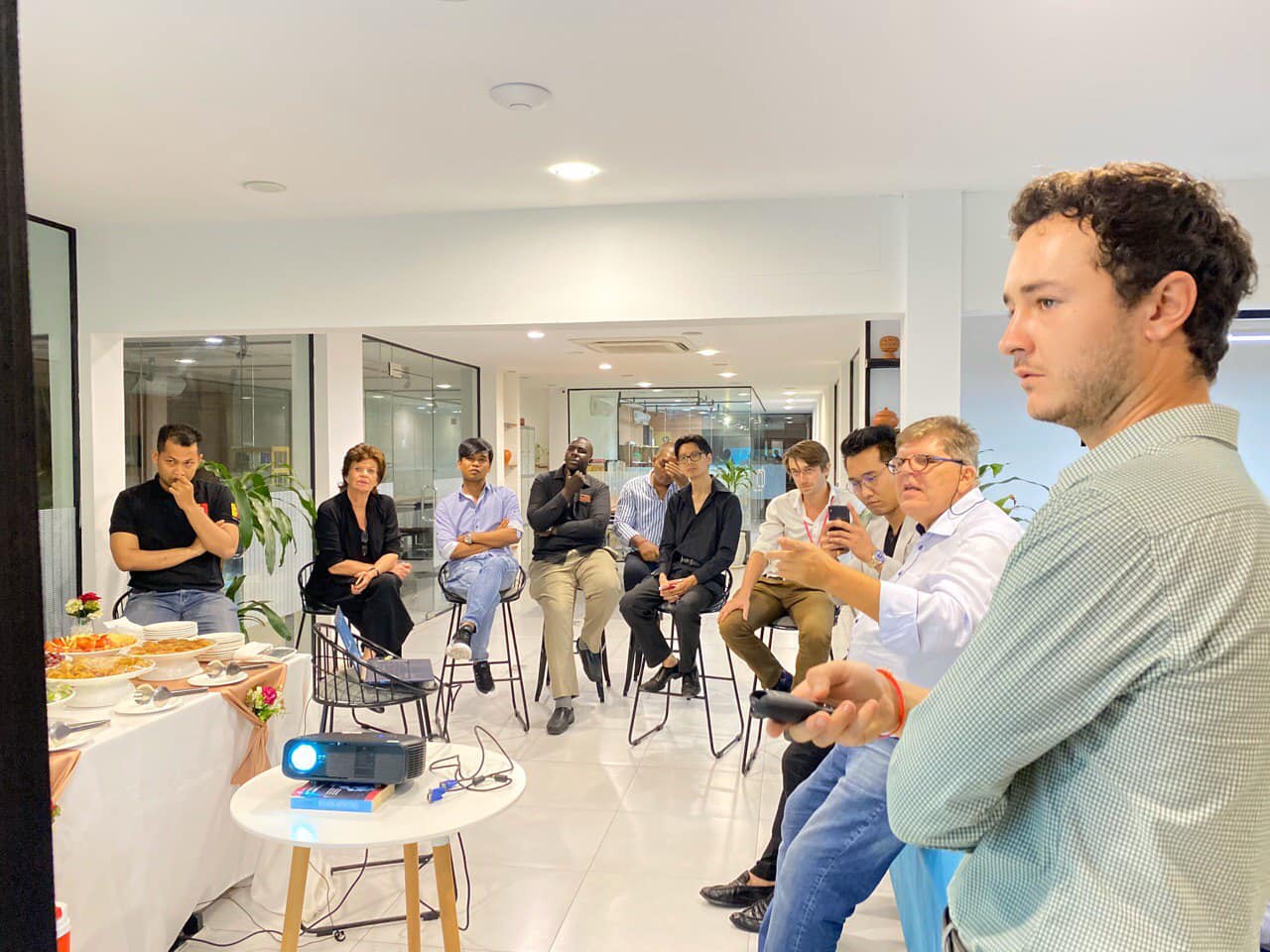 What a fast emerging nation. After the typical get to know each other and what our plans are, we have been very welcomed. At our entrepreneurs night at THE DESK in Phnom Penh, we met three amazing teams with very creative ideas. One is building a business that focuses entirely on e-commerce returns and its entire logistical challenges for any e-commerce operation that is not as powerful as Amazon. Another team, also in the e-commerce business, found a way to build a hybrid for small shops with no digital affinity to slowly emerge into the digital world by offering a scalable model from no digital to fully digital. And a third company is bold enough to actually stand up to Amazon and Alibaba by building an e-commerce platform with already over 100,000 products, mainly from China, at a purchase price level of the likes of Amazon. Bun, the founder, had already built a successful startup in Phnom Penh and had an exit with which he started his new company. All three joined the Accelerator program in Vietnam 3 weeks later. The event at THE DESK, who thankfully hosted the World Innovations Forum, had a significant impact on us and the ecosystem in Cambodia.
What a fast emerging nation. After the typical get to know each other and what our plans are, we have been very welcomed. At our entrepreneurs night at THE DESK in Phnom Penh, we met three amazing teams with very creative ideas. One is building a business that focuses entirely on e-commerce returns and its entire logistical challenges for any e-commerce operation that is not as powerful as Amazon. Another team, also in the e-commerce business, found a way to build a hybrid for small shops with no digital affinity to slowly emerge into the digital world by offering a scalable model from no digital to fully digital. And a third company is bold enough to actually stand up to Amazon and Alibaba by building an e-commerce platform with already over 100,000 products, mainly from China, at a purchase price level of the likes of Amazon. Bun, the founder, had already built a successful startup in Phnom Penh and had an exit with which he started his new company. All three joined the Accelerator program in Vietnam 3 weeks later. The event at THE DESK, who thankfully hosted the World Innovations Forum, had a significant impact on us and the ecosystem in Cambodia.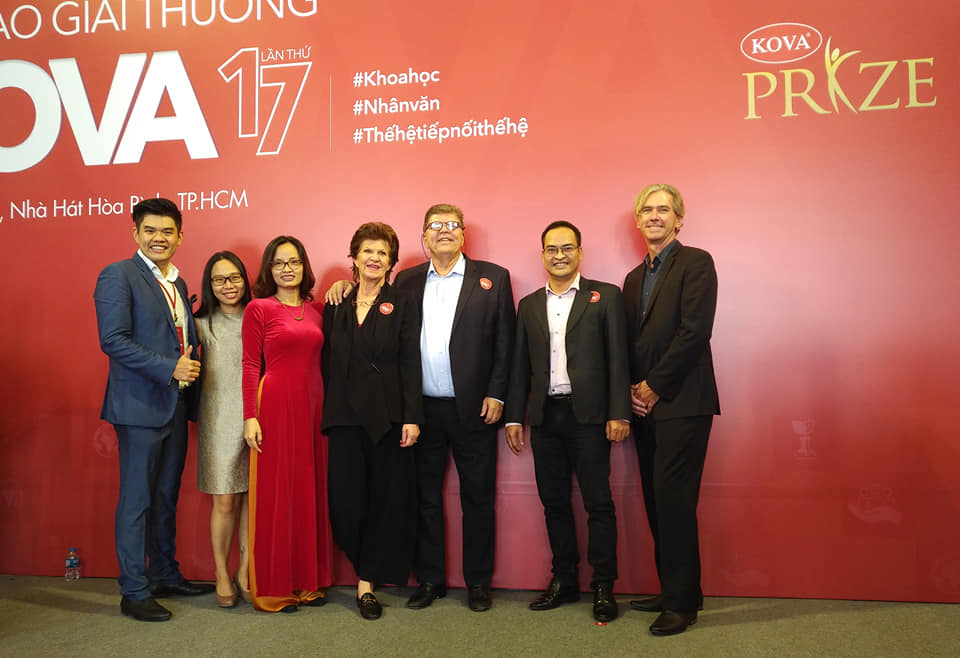 Our first visit to Vietnam was at a charity event from an already old friend from previous visits. His family is helping disadvantaged people, mostly women who are helping others. A very inspiring event with very moving examples of their work. It also shows that Vietnam is on its fast rise upwards where people make a lot of money but probably sooner than in other societies give back to those in need. In general, it was a great start meeting with all the people we met before. Since we are not a stiff and programmatic organization but people that love to work with people, friendships come more naturally. We believe it is what is needed to create impact rather than the impact on a report for donors.
Our first visit to Vietnam was at a charity event from an already old friend from previous visits. His family is helping disadvantaged people, mostly women who are helping others. A very inspiring event with very moving examples of their work. It also shows that Vietnam is on its fast rise upwards where people make a lot of money but probably sooner than in other societies give back to those in need. In general, it was a great start meeting with all the people we met before. Since we are not a stiff and programmatic organization but people that love to work with people, friendships come more naturally. We believe it is what is needed to create impact rather than the impact on a report for donors.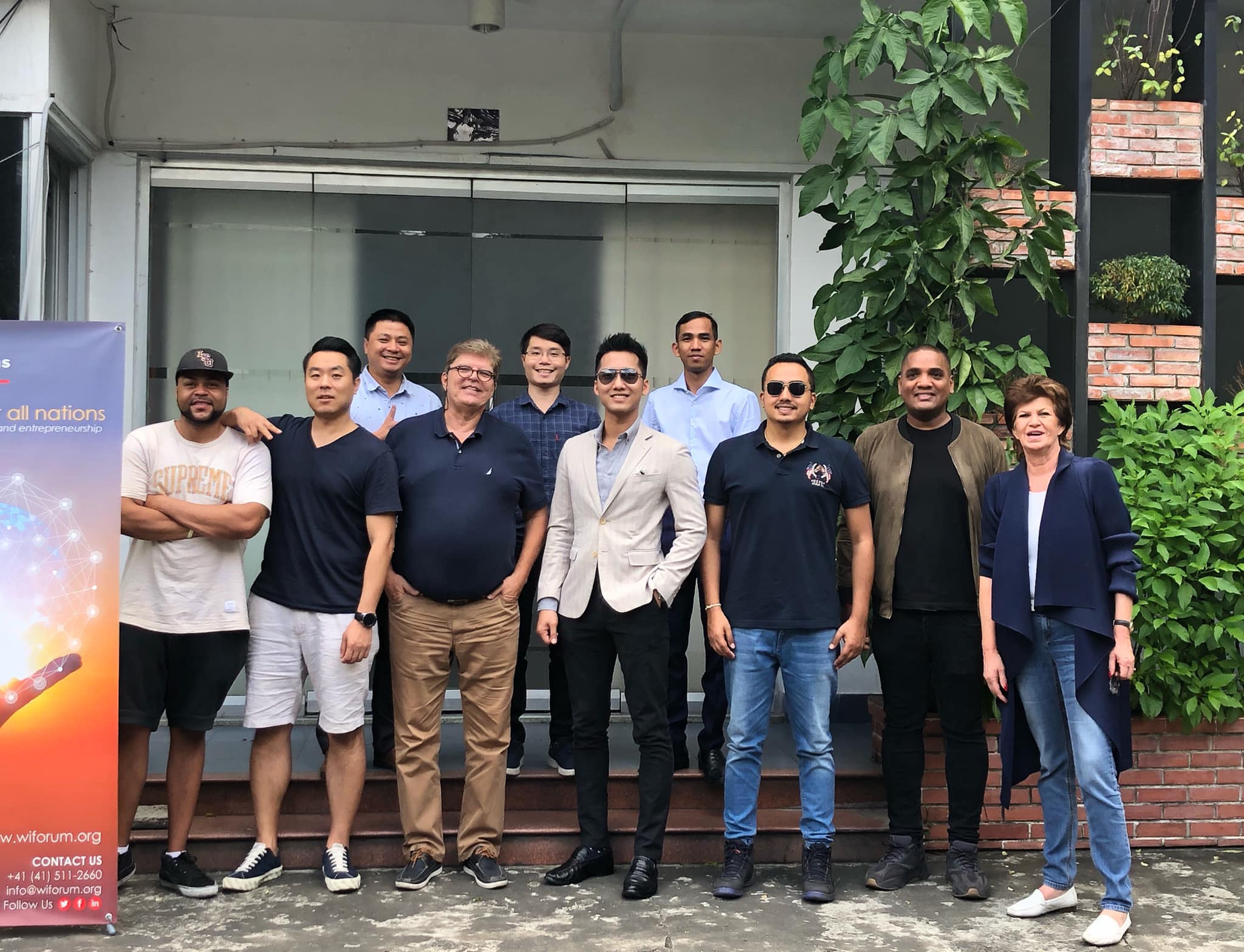 Our first seven accelerator flights have been before our work in emerging countries and were attended mostly by entrepreneurs from developed countries. The only exception was Flight 4, which was a spontaneous “Refugee Accelerator.” There we tried to help entrepreneurial refugees from Syria and Afghanistan to start their own business in Berlin, Germany, and instead of seeking jobs creating jobs. The result was four companies created, and two years later, 36 jobs created plus one going back and now helping entrepreneurs in Afghanistan to start their own business.
Our first seven accelerator flights have been before our work in emerging countries and were attended mostly by entrepreneurs from developed countries. The only exception was Flight 4, which was a spontaneous “Refugee Accelerator.” There we tried to help entrepreneurial refugees from Syria and Afghanistan to start their own business in Berlin, Germany, and instead of seeking jobs creating jobs. The result was four companies created, and two years later, 36 jobs created plus one going back and now helping entrepreneurs in Afghanistan to start their own business.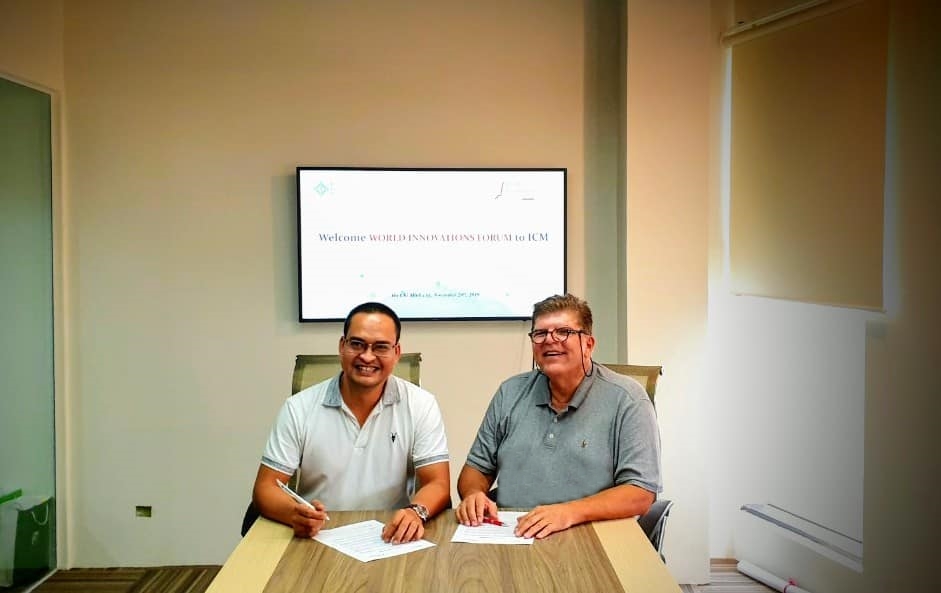 A new and very strategic partnership was formed with the Innovation Capital Management group that joined our global WIForum Innovation Capital Network. It’s the first investors’ group we have on board. The common ground is to make investments into startups in emerging countries much more accessible and to attract foreign investors by offering standardized stock purchase agreements in the English language with a notarized translation into the local language. The ICN project is still in the making but will be rolled out globally in 2020. Local investor groups from the countries we work in, such as Angel groups or venture capital firms, can join and collaborate on a framework that allows cross country investments, as long as the respective Foreign Direct Investment (FDI) policy for private equity exits ts in the respective country.
A new and very strategic partnership was formed with the Innovation Capital Management group that joined our global WIForum Innovation Capital Network. It’s the first investors’ group we have on board. The common ground is to make investments into startups in emerging countries much more accessible and to attract foreign investors by offering standardized stock purchase agreements in the English language with a notarized translation into the local language. The ICN project is still in the making but will be rolled out globally in 2020. Local investor groups from the countries we work in, such as Angel groups or venture capital firms, can join and collaborate on a framework that allows cross country investments, as long as the respective Foreign Direct Investment (FDI) policy for private equity exits ts in the respective country.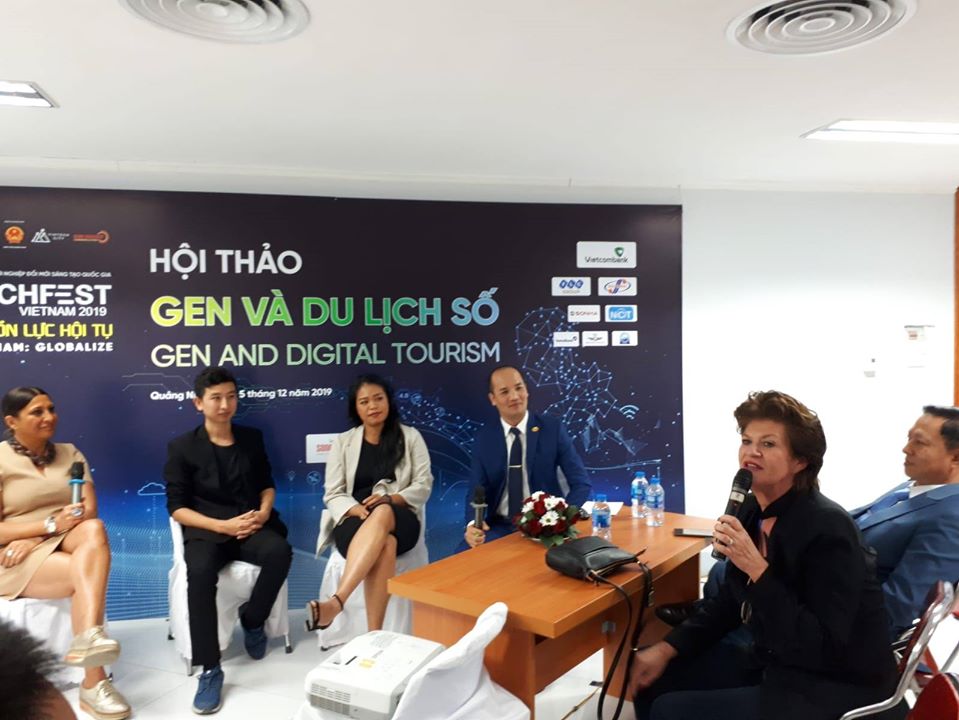 Another important partnership signed Marita with the SunChan Incubator with multiple locations in Vietnam. The idea is to help the organization adapt our new Innopreneurs Academy Program, an accelerator framework that allows the partners to work with a full-blown business model through a much-extended program, including corporate innovators and mid-market businesses. The signing happened during the TechFest in Halong Bay.
Another important partnership signed Marita with the SunChan Incubator with multiple locations in Vietnam. The idea is to help the organization adapt our new Innopreneurs Academy Program, an accelerator framework that allows the partners to work with a full-blown business model through a much-extended program, including corporate innovators and mid-market businesses. The signing happened during the TechFest in Halong Bay.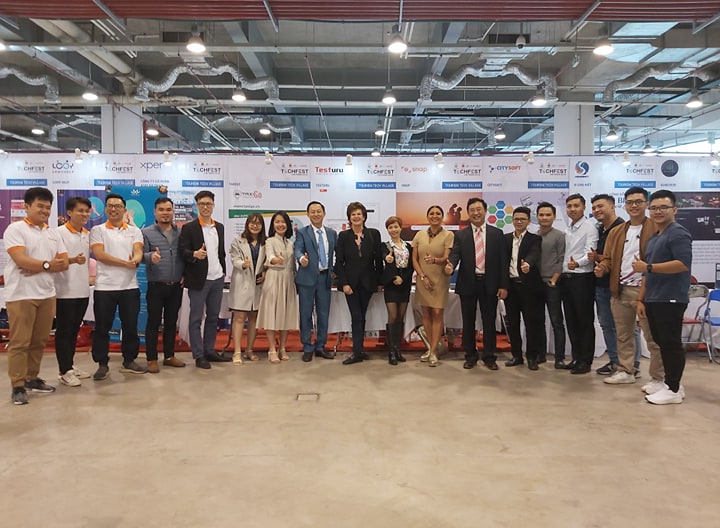 At the end of our stay, we visited a fantastic TechFest 2019 in the beautiful Halong Bay in northern Vietnam. We performed several workshops, gave keynotes, and conducted lots of meetings.
At the end of our stay, we visited a fantastic TechFest 2019 in the beautiful Halong Bay in northern Vietnam. We performed several workshops, gave keynotes, and conducted lots of meetings.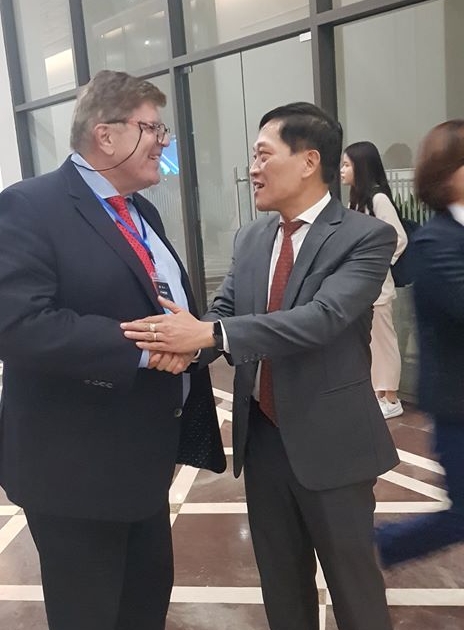 It was a pleasure and honor to meet the Minister for Science and Technology, Tran Van Tung, during the event and together on one of the podium discussions. You feel the ambition and energy of the country all the way to the top political ranks, very different than most other Southeast Asian countries. You literally feel the energy in Vietnam.
It was a pleasure and honor to meet the Minister for Science and Technology, Tran Van Tung, during the event and together on one of the podium discussions. You feel the ambition and energy of the country all the way to the top political ranks, very different than most other Southeast Asian countries. You literally feel the energy in Vietnam.